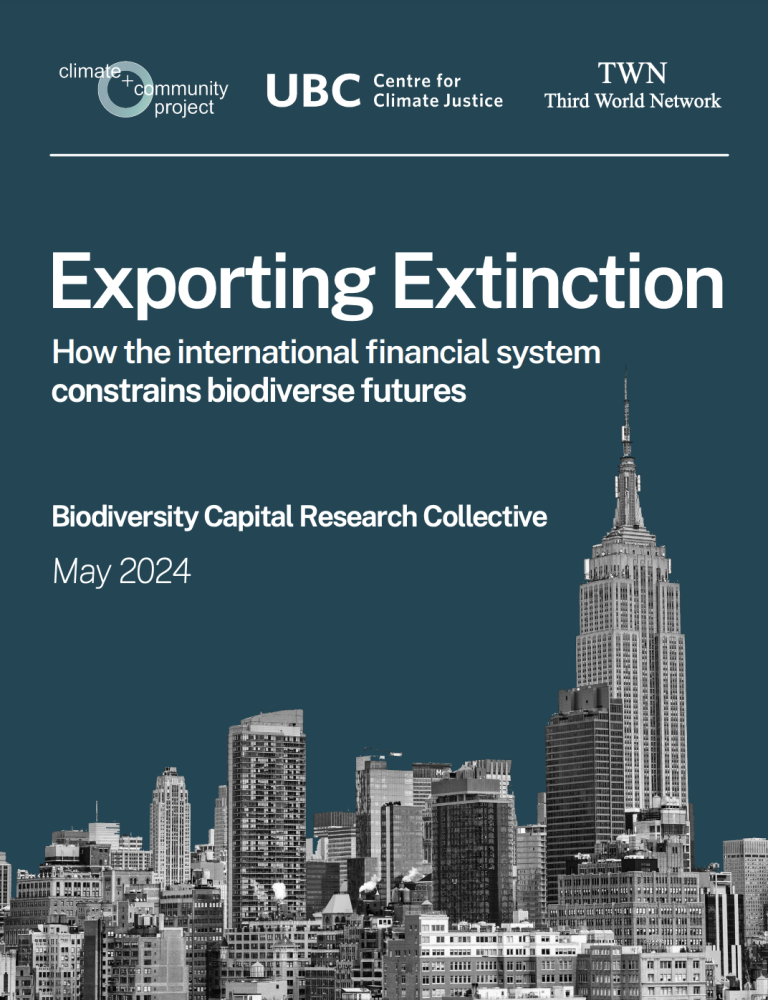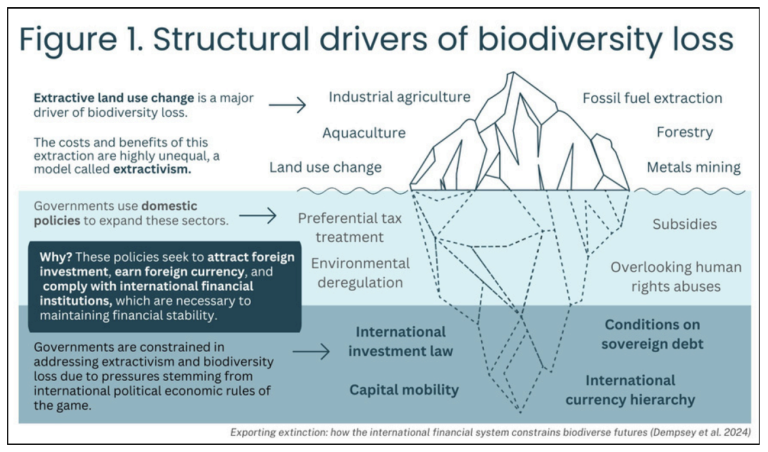Climate justice requires structural change to our economies at multiple scales, transforming systems of production and consumption and redistributing wealth to redress past harms. The impacts of and responses to climate change have wide-ranging implications for labour in various forms and structures. We aim to promote international solidarity in the climate movement by highlighting pressing intersections of climate change, authoritarianism, and human rights, based on an understanding that no form of justice can be won without robust political freedom and solidarity.
This stream of work engages with emergent thinking and movement-building on pathways for essential economic transformation including climate jobs and just transitions, reforms to the international monetary and financial systems, and reparations and economic redistribution. We are inspired by philosopher Olúfémi Táíwò to think of redistribution and reparations as a constructive project building foundations for a better world and essential to transformative change for climate justice. Our work aims to enliven and cultivate novel and reemergent institutional forms that are more equitable and sustainable.
We ask: How the costs and benefits of these changes will be distributed and who decides? What are the institutional forms that can hold coalitions together in the long term? How can political institutions and processes restore historic harms and address the climate crisis effectively and clearly?
Topics in this research stream:
- Industry transitions
- International financial architecture reform
- Retooling infrastructure
- Climate-related health impacts on workers
- Changing definitions of essential work
- Emergent green democracy movements
- Coalescent solidarity movements
Project spotlights
Exporting extinction: How the international financial system constrains biodiverse futures
 Extractive activities are a main driver of biodiversity loss. This study of extractive sectors in 5 countries shows how the international financial and monetary system pressures governments to maintain and expand these sectors, despite state commitments to reduce drivers of biodiversity loss. Study results point to the critical need to address the political economic rules that constrain government action on biodiversity loss, particularly for states that must play by these rules but have little power to influence them.
Extractive activities are a main driver of biodiversity loss. This study of extractive sectors in 5 countries shows how the international financial and monetary system pressures governments to maintain and expand these sectors, despite state commitments to reduce drivers of biodiversity loss. Study results point to the critical need to address the political economic rules that constrain government action on biodiversity loss, particularly for states that must play by these rules but have little power to influence them.
Transformative biodiversity policy at a stalemate: Consensus on “age old” problems, coherent pathway forward needed
 In 2024 we released the findings of a report, “Exporting Extinction: How the international financial system constrains biodiverse futures.” Study results point to the critical need to address the political economic rules that constrain government action on biodiversity loss, particularly for states that must play by these rules but have little power to influence them. The report did not issue directive recommendations. Instead we convened five focus groups with biodiversity policy and movement experts to better understand practitioners’ perspectives on the barriers to and opportunities for systemic international political-economic change, this is a summary of those findings and recommendations.
In 2024 we released the findings of a report, “Exporting Extinction: How the international financial system constrains biodiverse futures.” Study results point to the critical need to address the political economic rules that constrain government action on biodiversity loss, particularly for states that must play by these rules but have little power to influence them. The report did not issue directive recommendations. Instead we convened five focus groups with biodiversity policy and movement experts to better understand practitioners’ perspectives on the barriers to and opportunities for systemic international political-economic change, this is a summary of those findings and recommendations.